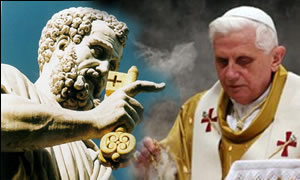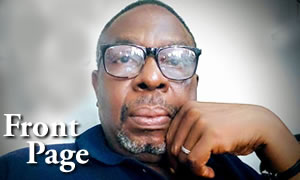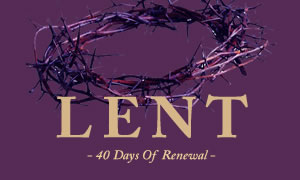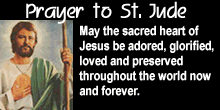


 While the First Vatican Council defined papal infallibility in 1870, you must understand that the date on which a doctrine is officially defined is not the date on which it becomes true. Rather, it was always true. It's just that different aspects of the Faith are challenged at different periods of history, and when a challenge occurs or a serious concern or question arises, then the Church will settle the difficulty by formally stating what the truth of the matter is - to end the confusion. So papal infallibility has always been true, and, moreover, was accepted and practiced from the earliest times.
While the First Vatican Council defined papal infallibility in 1870, you must understand that the date on which a doctrine is officially defined is not the date on which it becomes true. Rather, it was always true. It's just that different aspects of the Faith are challenged at different periods of history, and when a challenge occurs or a serious concern or question arises, then the Church will settle the difficulty by formally stating what the truth of the matter is - to end the confusion. So papal infallibility has always been true, and, moreover, was accepted and practiced from the earliest times.
The evidence that papal infallibility is part of the Christian Faith comes from three sources.
Scripture
First, Scripture. Such passages as: "Thou art Peter and upon this rock I will build my Church; to you I give the keys to the Kingdom of Heaven. Whatever you bind on earth is bound in heaven; whatever you loose on earth is loosed in heaven", and "Do you love me, Peter. Feed my sheep", and "I have prayed for you, Peter, that your faith may not fail. You in turn must confirm your brethren", have always been taken to refer to a special role for-Peter in the establishment of the Church, and special divine protection for Peter in the exercise of his authority.
History
Second, History. From the earliest times we see the bishops of Rome acting as if they had special authority in succession from St. Peter, and we also see the rest of the Church accepting their authority as if they knew it was genuine. Thus Pope Clement wrote to settle a problem in the Church of Corinth before the end of the 1st century. During the first few hundred years of Church history, moreover, many who were accused of heresy appealed from every comer of the known world to
Rome for vindication or condemnation. The Fathers too repeatedly attest to the authority of the Roman See. And the Popes always had the decisive word at general councils, as when the Fathers of the Council of Chalcedon said in response to the Papal definition of the two natures of Christ, "Peter has spoken through Leo" -and accepted it unhesitatingly.
Logic
Third, Logic. There are only two covenants, the old and the new. But the first Christians under the New Covenant had a living and infallible guide to the truth in Christ himself. Surely the lack of such a guide in future times would constitute yet another covenant- the difference would be so radical. The argument runs as follows:
It is clear even from Scripture that Peter had a special commission and special powers from Christ to care for the flock of Christ, to bind and loose, and to confirm his brothers in faith -indeed he had the very powers of the keys to the Kingdom. Obviously, these powers were essential to the Church as constituted by Christ. And Christ promised to be with the Church always to the end of time, and said that the powers of hell would not prevail against it.
Now, clearly Christ knew that Peter would not live until the end of time, so he must have intended that the power he gave to Peter would be carried on until His return. After all, Peter was to feed "my" (Christ's) sheep, and so was serving as the vicar of Christ in Christ's absence. When Peter died, a new vicar would take his place, and so on, until Christ returned to claim his own. The parable of the steward awaiting his Master's return is very much to the point.
Just as clearly, Peter's authority also enabled himself (and his successors) to set forth the manner in which their successors would be selected, either by choosing the successor personally before death, or by setting forth some other means - eventually, election by the college of cardinals.
Moreover, if these special and essential powers were to pass out of existence, it would be proof that Christ was no longer with his Church and that the powers of Hell had indeed prevailed. Therefore, again, Christ must have intended successors to Peter.
For this reason, we are not at all surprised that subsequent popes claimed to have the Petrine power and that the early Christian community accepted it without question. As I indicated above, this authority was exercised by the fourth Pope, Clement, while St. John the Evangelist was still alive. The earliest Christians were in a position to know Christ's will from other sources than Scripture (just as we today, under the guidance of the Church, are able to learn from Tradition).
Infallibility Itself
Now we come to the specific question of infallibility, by which the successors of Peter continue to confirm the brethren. Since the successors of Peter have the same Petrine authority, which comes ultimately from Christ, to bind and loose, they have the authority to bind the faithful in matters pertaining to salvation - that is, in faith or morals. Now, if a Pope could bind the faithful to error, it would be a clear triumph of the powers of Hell, because the entire Church would be bound to follow the error under Christ's own authority. Obviously, this cannot happen.
Therefore, the logic of the situation demands that the Petrine power of confirming the brethren must be an infallible power. When the Pope intends by virtue of his supreme authority to teach on a matter of faith and morals to the entire Church, he MUST be protected by the Holy Spirit from error - else the powers of hell would prevail.
This is the logic behind infallibility. But, of course, it is not based solely on logic, since it is attested in Scripture and was held by the earliest Christians and the Fathers and, indeed, by the vast majority of Christians from the beginning.
Further, it is not a new thing. It was precisely defined at Vatican I in order to clarify what was at that time a confusing issue, but this was by way of stating clearly what Christ's teaching was, not by way of adding anything new.
When the Pope
(1) intends to teach
(2) by virtue of his supreme authority
(3) on a matter of faith and morals
(4) to the whole Church, he is preserved by the Holy Spirit from error.
His teaching act is therefore called "infallible" and the teaching which he articulates is termed "irreformable".


I have been thinking a great deal about my experience at Reconciliation this past Saturday. I felt an intense and unexplainable urge to go and confess my sins when I woke up that morning. I try to go every six weeks or so, but this was no routine visit to the priest for me. I needed to unburden myself of the numerous venial sins I had committed since I last participated in this Sacrament.
Purest Gold: God's Refining Fire in our Lives »
After salvation, many young Christians wonder if there's anything more to their newfound faith than just the security blanket of "being a Christian." Time and time again, God shows himself as a "refiner," and our lives are as gold. God started leading me in this study to understand what He was doing in my life, as well as in the lives of others.
Picking up my pen to write this column, I couldn’t imagine how time flies. Since the last publication of this column I have gone through a lot, especially the loss of my dear mother to whom I dedicate this article. Not only her, but seems I lost a whole generation of my close family.
How to Achieve Business Excellence »
“Do you see a man who excels in his work? He will stand before Kings; He will not stand before unknown men.” Proverbs 22:29
Spiritual Development for our Youth »
Most of us youth in today's fast moving world are easily thrown off by difficulties and worries.
The theme of conversion is a thread that runs all through Lent, but conversion takes on different aspects throughout the phases of Lent. The first two and a half weeks focused on the interior turning of hearts; the liturgy urges the faithful to reflect and examine consciences thoroughly.
Saint Josephine Bakhita »
Feast Day: February 8
Patron Saint Of: Sudan
Saint Josephine Margaret Bakhita was born around 1869 in the village of Olgossa in the Darfur region of Sudan. She was a member of the Daju people and her uncle was a tribal chief. Due to her family lineage, she grew up happy and relatively prosperous, saying that as a child, she did not know suffering.
Catholics Must Fast More Intensely This Lent»
The Norbertine Canons of St. Michael's Abbey have created this digital Lenten retreat so that you can journey through this holy season alongside them. If you want to have one of your best Lenten seasons yet, join us in our Lenten Program "The Great Fast" - https://theabbotscircle.com/the-great-fast-join
When Your Faith Is Put to the Test - Bishop Barron's Sunday Sermon»
Friends, we come now to the Second Sunday of Lent, and we’re on both dangerous and very holy ground with the first reading from the twenty-second chapter of Genesis. The ancient Israelites referred to it as the “Akedah,” which means the “binding”: Abraham binds and is ready to sacrifice Isaac at God’s command.

Copyright © 2002-2024 THE BEACON INTERNATIONAL CATHOLIC MAGAZINE. All rights reserved.
another mc.rufus interactive web design